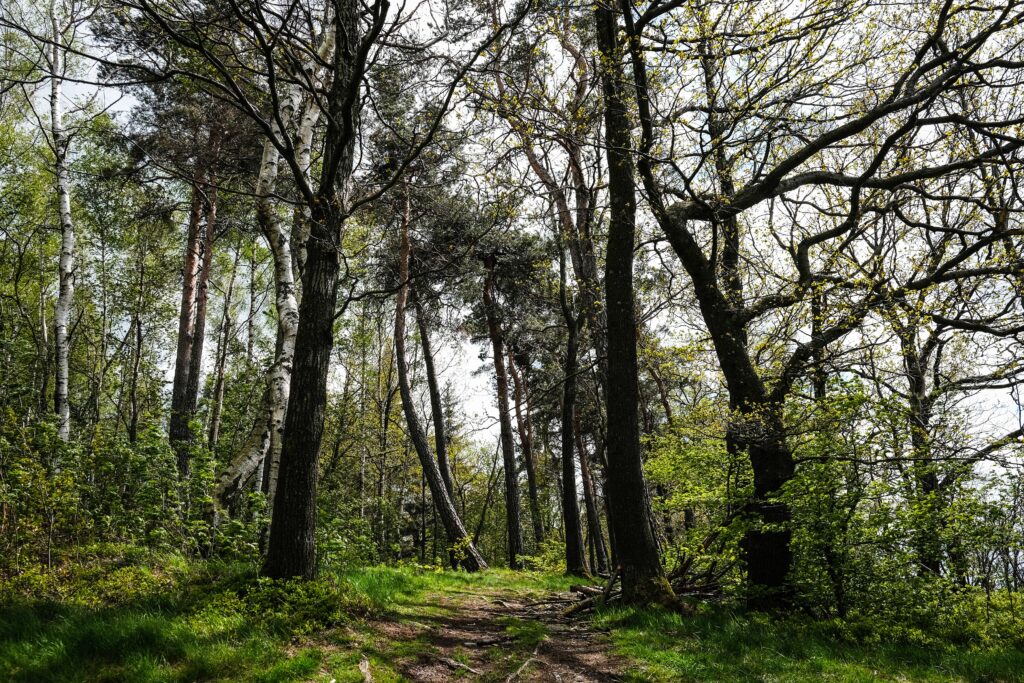Temperate forests are the usual biome in eastern North America, Western Europe, Eastern Asia, Chile, and New Zealand. This biome is spreading throughout mid-latitude regions.
Temperatures range from -30°C to 30°C (-22°F to 86°F) and fall below freezing annually. The growing seasons of the forests are spring, summer, and early autumn. Rainfall is fairly constant throughout the year, varying from 75 cm to 150 cm (29.5 to 59 in).
Deciduous trees are the dominant plant in this biome with some evergreen conifers. Deciduous trees lose their leaves every fall and remain leafless through the winter. Therefore, little photosynthesis takes place during hibernation. New leaves appear each spring as the temperature rises.
Because of the dormant period, the net primary productivity of temperate forests is lower than that of tropical forests. In addition, temperate forests have much lower tree species diversity than tropical forest biomes. and shade much of the ground. However, more sunlight reaches the ground in this biome than in tropical rainforests because trees in temperate forests do not grow as tall as trees in tropical rainforests
Dominant wildlife: Deer; black bears; bobcats; nut and acorn feeders, such as squirrels; omnivores such as skunks and raccoons; numerous songbirds; turkeys.
Forest soils in temperate zones are rich in inorganic and organic nutrients compared to tropical forests. This is because of the thick layer of leaf litter on forest floors and reduced leaching of nutrients by rainfall. As this leaf litter decays, nutrients are returned to the soil. The leaf litter also protects soil from erosion, insulates the ground, and provides habitats for invertebrates and their predators.

Erzsebet Frey (Eli Frey) is an ecologist and online entrepreneur with a Master of Science in Ecology from the University of Belgrade. Originally from Serbia, she has lived in Sri Lanka since 2017. Eli has worked internationally in countries like Oman, Brazil, Germany, and Sri Lanka. In 2018, she expanded into SEO and blogging, completing courses from UC Davis and Edinburgh. Eli has founded multiple websites focused on biology, ecology, environmental science, sustainable and simple living, and outdoor activities. She enjoys creating nature and simple living videos on YouTube and participates in speleology, diving, and hiking.

